Swimming is more than just a recreational activity; it is a life skill that can bring immense value to your life. Whether you are looking to improve your fitness, enjoy water-based activities, or prioritize safety in water environments, learning to swim is a crucial step. In this article, we will discuss the benefits of both the DIY approach and formal swimming lessons, helping you understand which path suits you best. So, let’s explore the world of swimming and uncover its incredible advantages.
Benefits of DIY Swimming
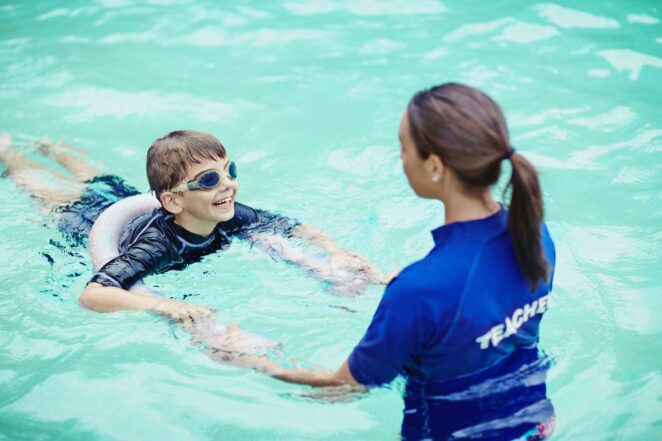
Independence and Convenience
One of the significant advantages of the DIY approach to swimming is the independence and convenience it offers. Learning at your own pace and on your own schedule gives you the freedom to tailor your journey to your specific needs. With access to online tutorials, instructional videos, and resources, you can embark on a self-guided swimming adventure that suits your lifestyle.
Cost-effectiveness and Flexibility
Another benefit of DIY swimming is its cost-effectiveness and flexibility. Unlike formal swimming lessons, which can be expensive, DIY requires minimal investment. All you need is access to a suitable swimming environment, such as a local pool, lake, or ocean. You can practice in various settings and adapt to different water conditions, enhancing your adaptability as a swimmer.
Tips and Resources for Beginners
Embarking on your swimming journey can be both exciting and intimidating, especially if you are a beginner. However, the wealth of tips and resources available to beginners makes the process more accessible. Online communities, forums, and tutorials provide valuable insights, guidance, and practical tips for beginners. Also, you can turn your attention to outlets such as Bukit Panjang swimming lessons, and try to learn that way. From learning basic strokes to overcoming common challenges, these resources can support and inspire you as you dive into the world of water.
Benefits of Formal Lessons
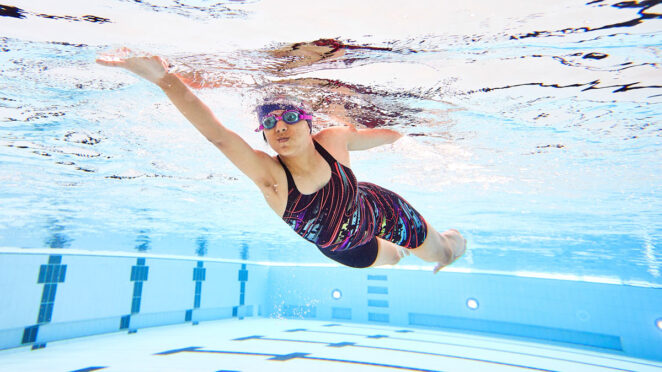
Structured Curriculum and Professional Guidance
Formal swimming lessons offer a structured curriculum designed by certified instructors, ensuring a progressive development of your skills. Each lesson is carefully planned to introduce and refine specific techniques, building a solid foundation for your swimming abilities. With professional guidance, you can trust that you are learning from experienced instructors who have a deep understanding of techniques, safety measures, and effective teaching methods.
Emphasis on Water Safety Skills
Water safety is a crucial aspect of formal swimming lessons. Instructors prioritize teaching proper techniques and essential water survival skills. Learning skills such as floating, treading water, and basic rescue techniques can be life-saving in water emergencies. By participating in formal lessons, you not only improve your swimming proficiency but also develop critical water safety skills that can protect yourself and others in various aquatic environments.
Social Interaction and Confidence Building
Formal swimming lessons provide an opportunity to interact with other swimmers, fostering social connections and building confidence in the water. Learning alongside peers creates a supportive and motivating environment where you can share experiences, overcome challenges together, and celebrate achievements. The camaraderie developed in lessons can boost your confidence and make the learning process more enjoyable.
Physical Fitness and Health Benefits

Improved Cardiovascular Fitness
Swimming is a fantastic cardiovascular exercise that strengthens your heart and improves overall fitness. The resistance offered by the water challenges your cardiovascular system, increasing its efficiency. Regular sessions can help reduce the risk of heart disease, lower blood pressure, and enhance your endurance.
Full-Body Workout
Swimming engages multiple muscle groups, providing a full-body workout. Each stroke utilizes different muscle sets, including your core, arms, legs, and back. As you propel yourself through the water, you improve muscle strength, tone, and flexibility. Additionally, the resistance of the water increases muscle activation, making it a highly effective exercise for building overall strength and stamina.
Low-Impact Nature
Unlike high-impact activities like running or weightlifting, swimming is a low-impact exercise that is gentle on your joints. The buoyancy of water reduces the stress placed on your joints, minimizing the risk of injury. This makes this activity an ideal exercise for individuals with joint conditions or those looking for a low-impact alternative to other forms of exercise.
Water Safety Skills
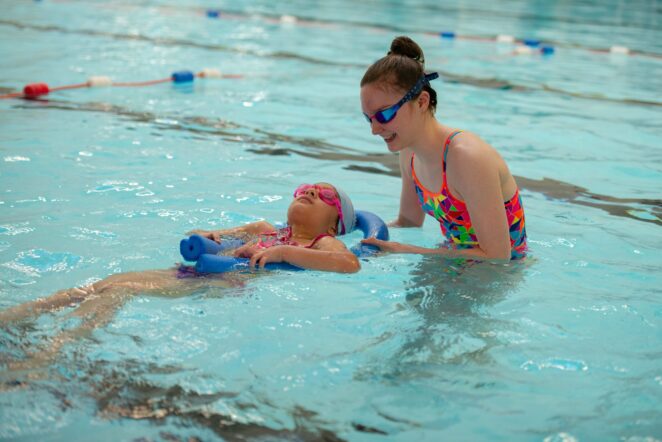
Essential Survival Skills
Learning to swim equips you with essential water safety skills that are crucial for your safety and the safety of others. Basic survival skills such as floating, treading water, and basic rescue techniques can make a significant difference in emergencies. By mastering these skills, you gain confidence and the ability to navigate water environments safely.
Confidence and Self-Assurance
Acquiring water safety skills and becoming a proficient swimmer instills confidence and self-assurance in the water. Overcoming the fear of water and building competence reduces the risk of accidents and allows you to fully enjoy water-related activities. The more comfortable and confident you become in the water, the more you can explore and take part in water-based adventures.
Mental Health and Relaxation
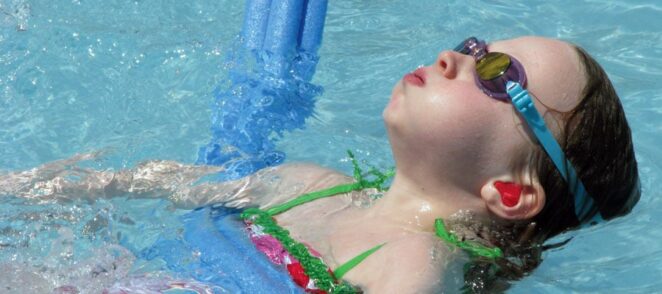
Therapeutic Benefits
Swimming offers therapeutic benefits for your mental well-being. The rhythmic movement and sensation of water have a calming effect on the mind, providing stress relief and promoting relaxation. It can serve as a form of meditation, allowing you to disconnect from daily stresses and find inner peace.
Increased Endorphin Production
Engaging in regular swimming sessions stimulates the production of endorphins, the body’s natural mood boosters. These “feel-good” chemicals promote a positive mood, reduce anxiety, and alleviate symptoms of depression. This activity can be a powerful tool in managing stress, improving mental resilience, and enhancing overall well-being.
Overcoming Fear of Water
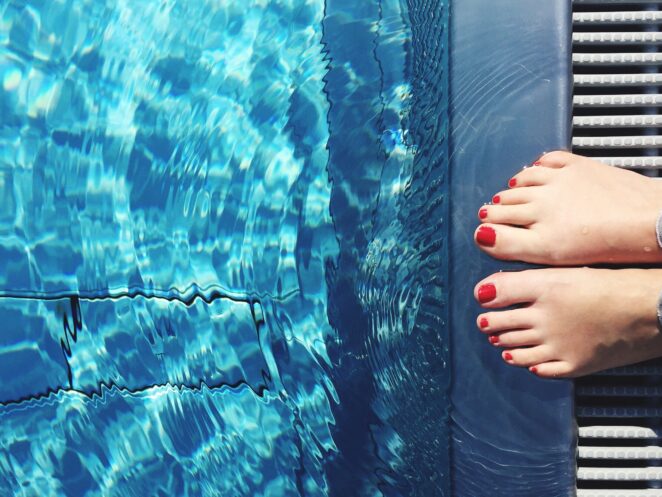
Supportive Environment
Formal swimming lessons provide a supportive environment for individuals to overcome their fear of water. Trained instructors are experienced in catering to the needs of individuals with aquaphobia and creating a safe space for them to learn and grow. Through gradual exposure and encouragement, individuals can gradually overcome their fear and build confidence in the water.
Gradual Exposure and Encouragement
Formal lessons follow a structured approach, gradually exposing individuals to water and providing support and encouragement along the way. Instructors understand the importance of personalized attention and cater to each individual’s unique needs. This approach helps individuals build trust, conquer their fears, and develop a sense of achievement.
Specialized Swimming Skills
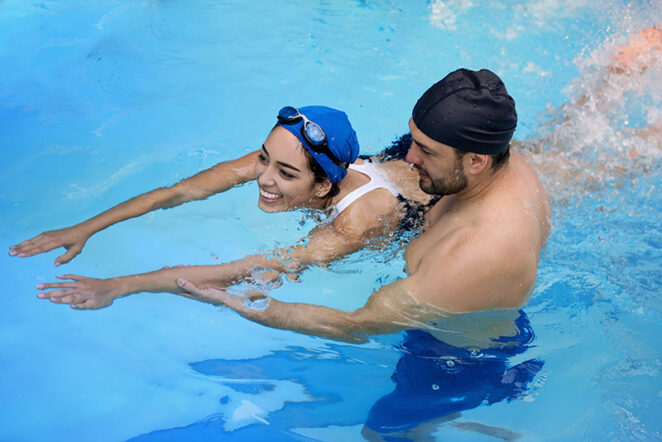
Introduction to Specialized Skills
Formal lessons often provide an introduction to specialized swimming skills such as diving, synchronized swimming, or water polo. These activities offer unique challenges and opportunities for personal growth. Exploring specialized skills can lead to further engagement in competitive sport or joining recreational swim teams, fostering camaraderie and a sense of accomplishment.
Benefits of Honing Techniques
Mastering specific swimming techniques provides numerous benefits. It enhances overall proficiency, improves cardiovascular fitness, and strengthens specific muscle groups. Moreover, specialized skills expand your horizons in the water and offer opportunities for personal achievement and self-expression.
Lifelong Recreation and Adventure
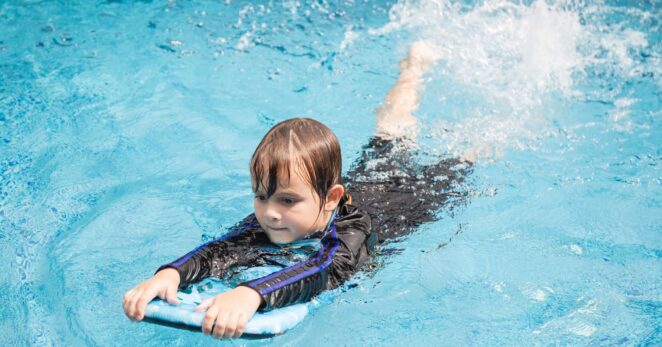
Enjoying Water-based Activities
Learning to swim opens up a world of recreational activities and adventures. Whether it’s snorkeling in crystal-clear waters, scuba diving to explore vibrant underwater ecosystems, or kayaking down meandering rivers, these skills enable you to immerse yourself in nature and enjoy water-based activities to the fullest.
Confidence in Natural Bodies of Water
With swimming skills, you can confidently explore natural bodies of water such as lakes, rivers, and oceans. Whether you’re vacationing at a beach resort or embarking on a wilderness adventure, the ability to swim provides a sense of security and freedom. You can appreciate the beauty of nature while knowing you have the skills to navigate its waters safely.
Access to Aquatic Careers
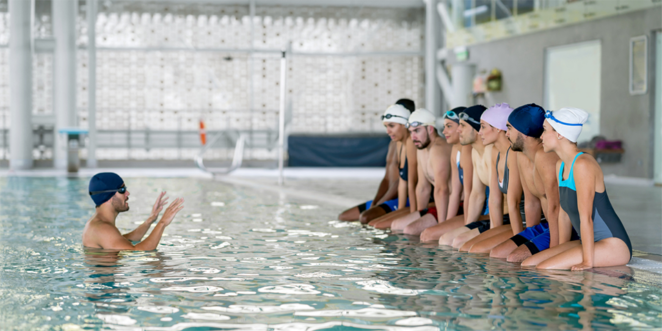
Potential Career Paths
Learning to swim opens doors to potential career paths in the aquatic industry. Lifeguarding, swim coaching, and water safety instruction are just a few examples of careers related to swimming. These professions provide fulfilling opportunities to make a positive impact, share knowledge, and ensure the safety of others.
Competitive Swimming and Scholarships
Formal swimming lessons lay the foundation for competitive water sports. As skills develop, individuals can pursue competitive swimming opportunities, participate in swim meets, and potentially earn scholarships. Competitive type offers a path to personal growth, achievement, and the possibility of further education through athletic scholarships.



